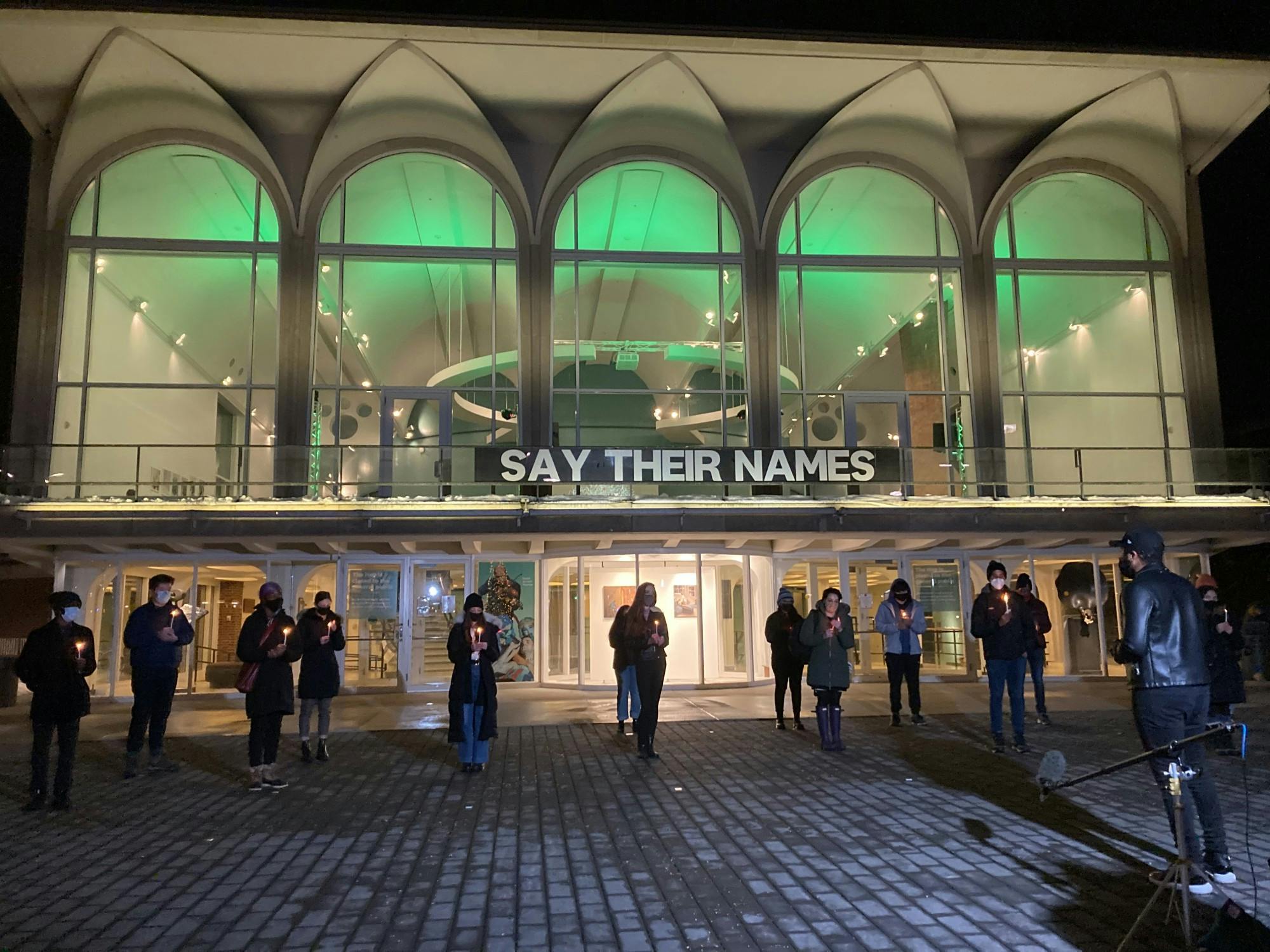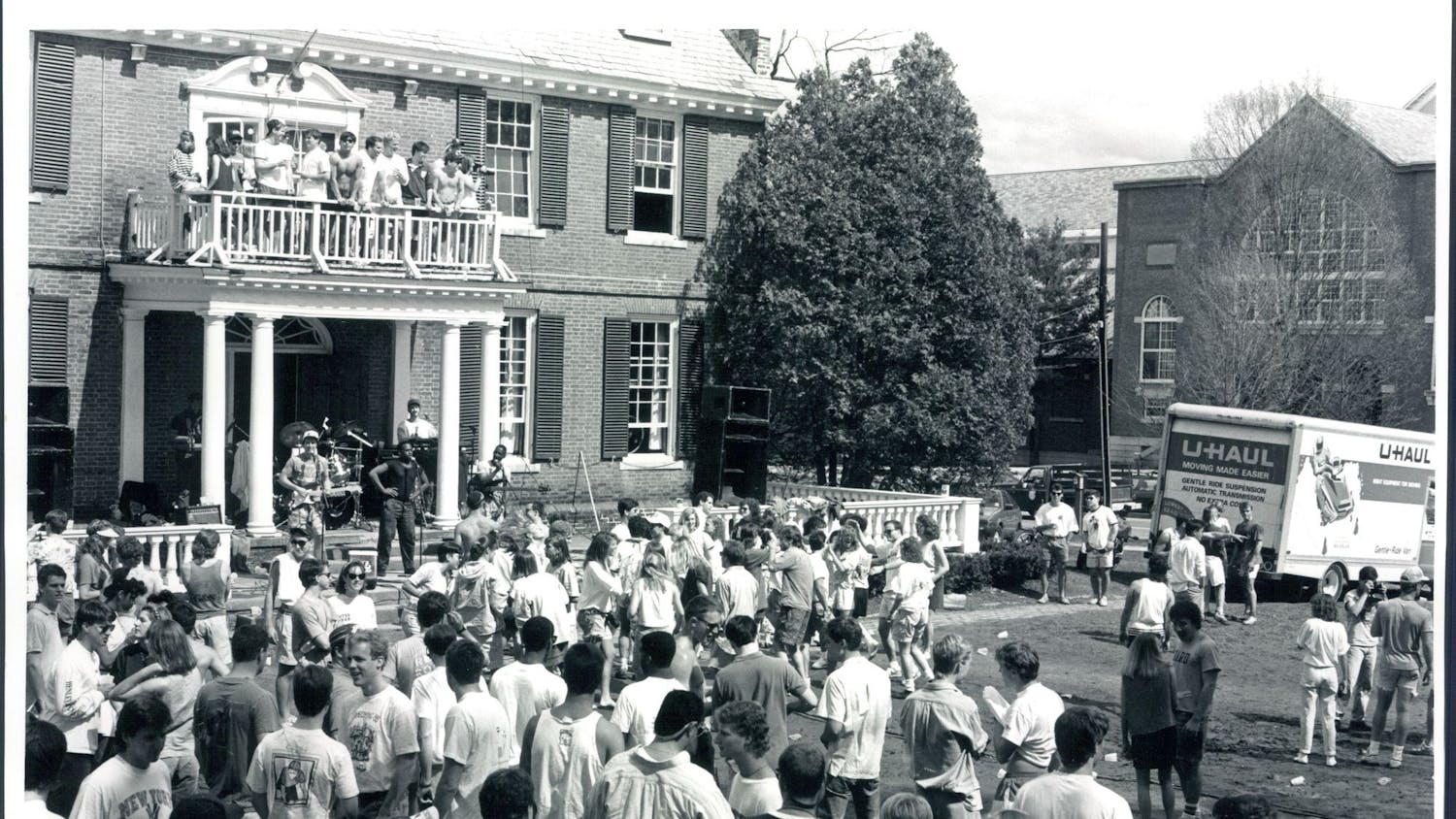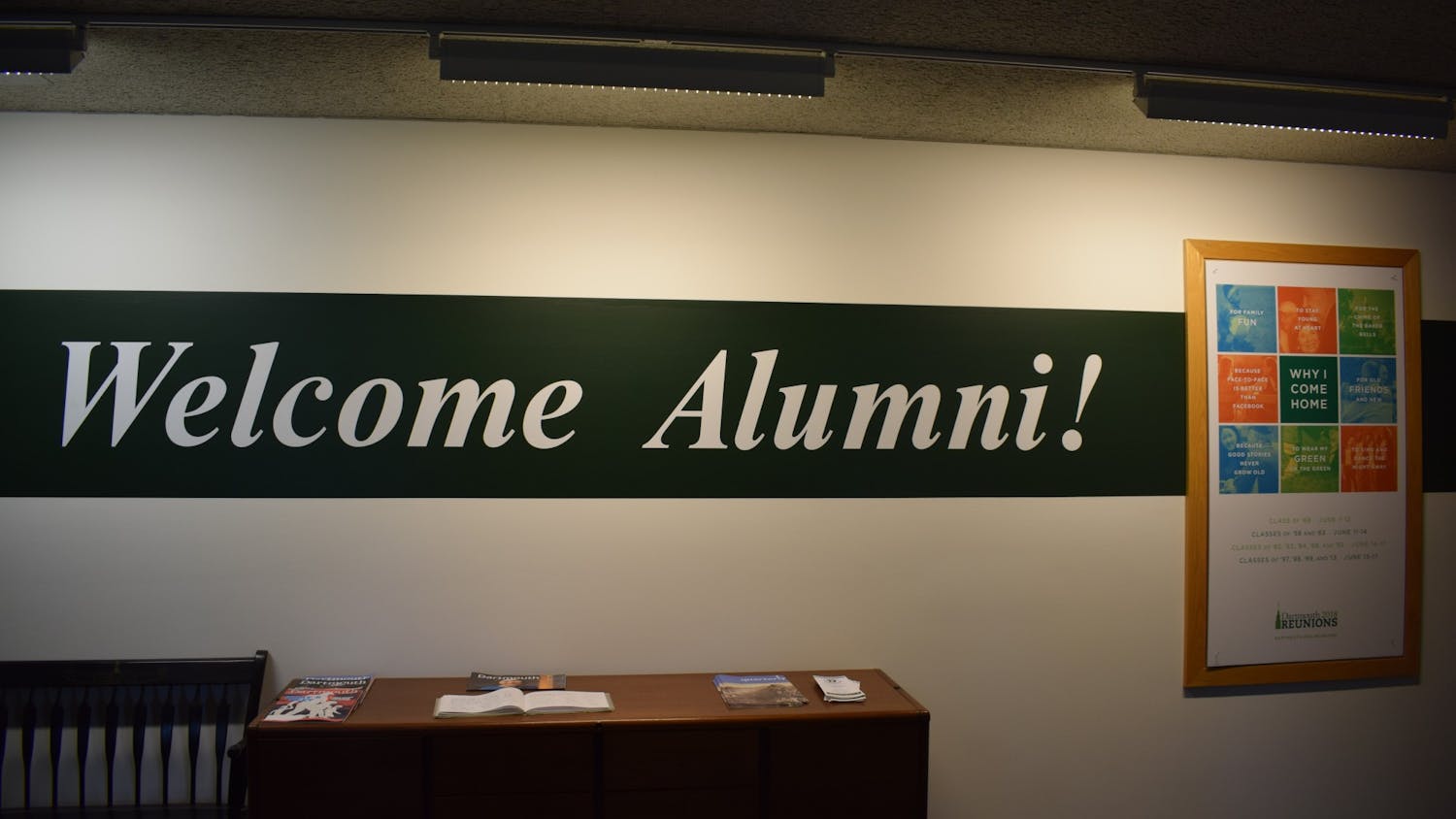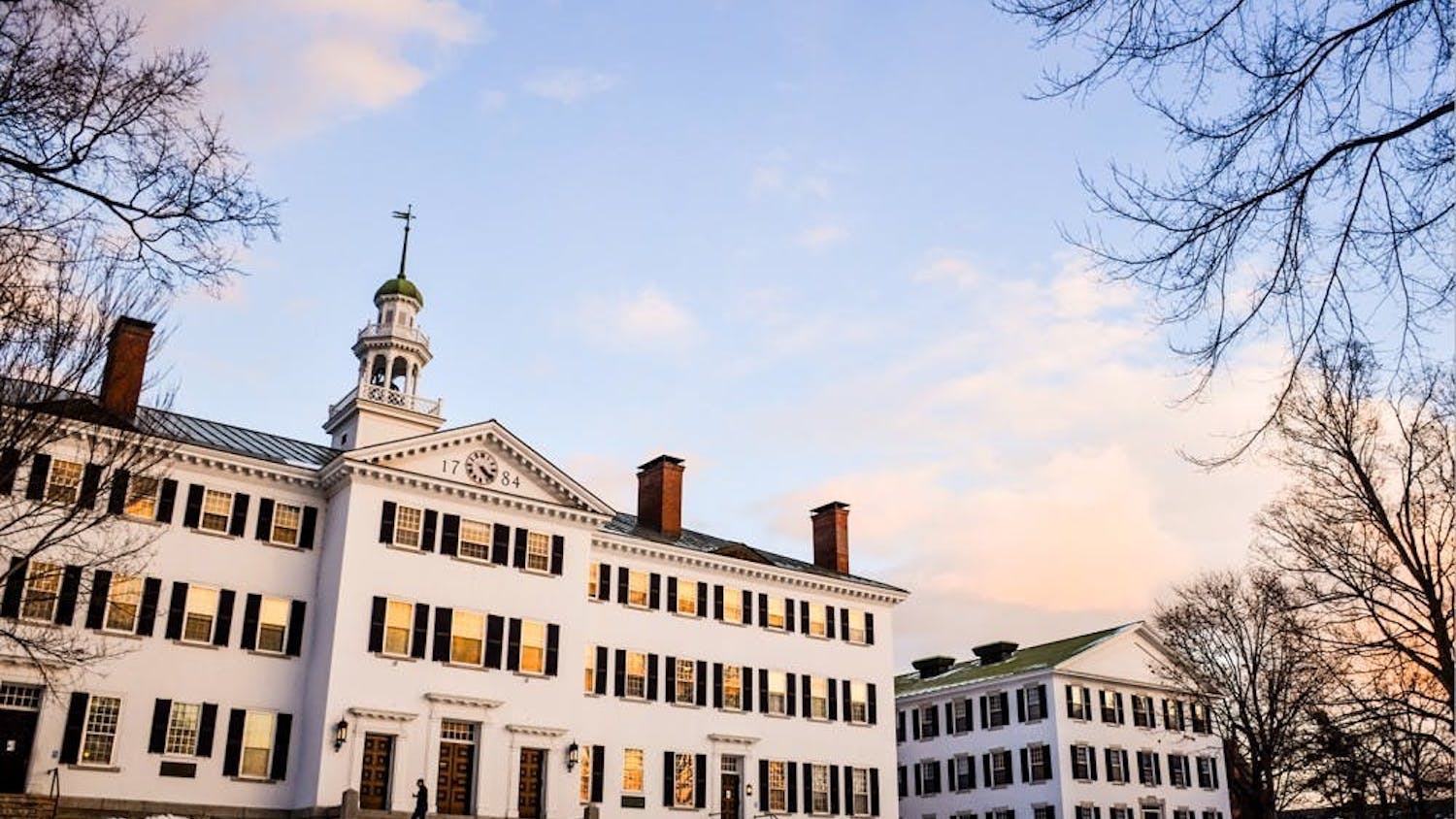Nearly 125 members of the Dartmouth community attended the “Brothers and Sisters” vigil on Tuesday night, which honored Ahmaud Arbery on the one-year anniversary of his killing. The event served as a space to pay respect to Arbery and other victims of race-based violence, including Michael Brown, George Floyd, Trayvon Martin and Breonna Taylor.
The vigil, which was co-sponsored by the Guarini School of Graduate and Advanced Studies, the Tucker Center for Spiritual and Ethical Life and the Office of Pluralism and Leadership, included both in-person and Zoom components. While nearly 100 participants attended the event on Zoom, another group of 25 gathered in person outside the Hopkins Center for the Arts with candles and a poster board to write messages of love and hope.
The Zoom event began with a short introduction by Awo Adu ’22 before switching to a livestream of the participants outside the Hopkins Center. Attendees observed a moment of silence for eight minutes and 46 seconds, a nod to the amount of time former Minneapolis police officer Derek Chauvin knelt on the neck of George Floyd in May. In-person attendees held candles, and Zoom participants were invited to share “comments of love, hope and reflection within the Zoom chat.”
The event was organized and led by Guarini fellows Isaiah Diaz-Mays GR’22 and Lessley Hernandez ’20 GR’21. According to Diaz-Mays, the idea for the event started out of interest among himself and a small group of friends, who then encouraged him to open it up to the community.
“Initially, this was just something of self-interest that is important to me,” Diaz-Mays said, adding that Arbery was around the age of many college students when he was killed. Diaz-Mays presented the idea at a weekly Diversity Fellows meeting, where Hernandez offered her support and came on board as a co-organizer.
Hernandez commented on the importance of holding a vigil of this nature at Dartmouth in particular. Especially with the fast-paced nature of Dartmouth’s quarter system on top of the stress of the pandemic, she said that “creating that space and having these moments is super important.”
Diaz-Mays and Hernandez originally hoped for a larger in-person event, but both noted that they faced challenges organizing the event due to College restrictions amid the COVID-19 pandemic. As interest and support for the event grew, they realized they would not be able to have a traditional in-person vigil as they had imagined and instead adapted to a hybrid in-person and Zoom format.
The event was approved to have 25 people attend in person, including technical staff, Hernandez said. The in-person participants were students who had expressed personal interest in the event to Diaz-Mays and Hernandez and those who were involved with planning.
“We're not trying to be gatekeepers for emotions of vulnerability,” Hernandez said. “We wanted to be very conscious of the space that we're creating because [we wanted] to bring dignity to it.”
Adu, who attended the event via Zoom, echoed the importance of the Dartmouth community making space to honor Black lives.
“Visibility is really important,” she said. Noting that the Upper Valley is “very white,” she added that “as far away as they might be geographically, these atrocities are still very much [present].
“[The Dartmouth and Upper Valley communities] have responsibility, as human beings, to respond to these matters and to make sure that they're doing their part too to prevent these atrocious cycles from continuing,” she said.
Adu considered the vigil to be similarly significant to a protest or rally.
“We are resisting the modern day effort to sort of sweep these names under the rug,” she said. “The vigil was a way of being like, ‘We're going to keep saying their names, and we're just never going to stop saying their names.’”
Hernandez highlighted how the virtual format allowed a broader audience, including those not physically in Hanover, to participate. The live chat feature also allowed participants to share poems and other words of support throughout the event.
Rena Mosteirin, a lecturer in the Masters of Arts in Liberal Studies program at Guarini, shared the poem “The World We Want Is Us'' by Alice Walker in the Zoom chat during the event. In an email to The Dartmouth, she wrote that she shared the poem because “[Walker] writes so perfectly about this generation stepping into their power.”
Mosteirin added that she found the vigil to be a powerful event.
“At the vigil last night, [Diaz-Mays and Hernandez] created a very important space for the community to share grief and loss,” Mosteirin wrote. “I see their work as a refusal to allow Ahmaud Arbery’s name to be erased.”
However, the shift to Zoom allowed for one “zoom-bomber.” During the event, a participant joined the Zoom call and began displaying obscene images and playing music. The participant was quickly removed, and the Zoom room was subsequently locked.
Diaz-Mays noted the overall success of the event, however, and said that he hopes that the vigil will become an annual one.
“As human beings, we're always moving, so it's natural to forget,” he said. “But it is imperative that we do not forget, because forgetting is what allowed those two men to think that it was OK to kill Ahmaud.”




